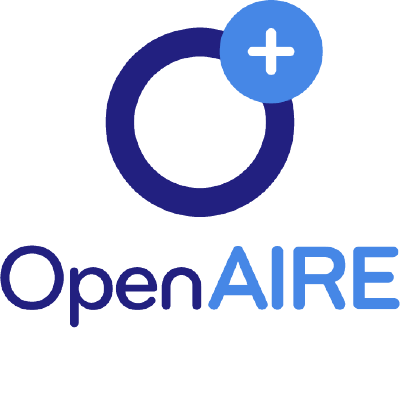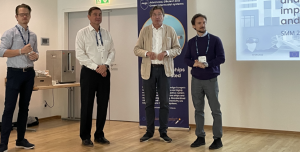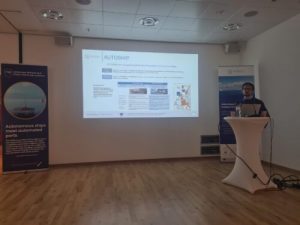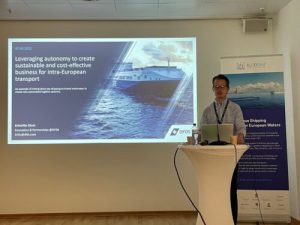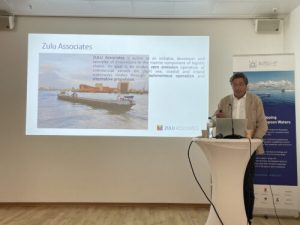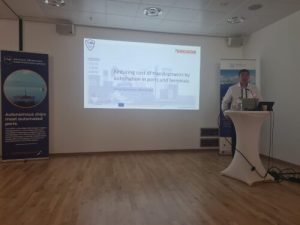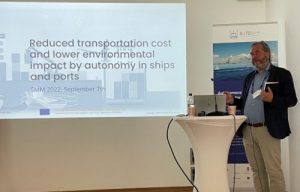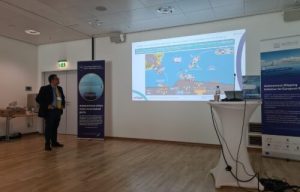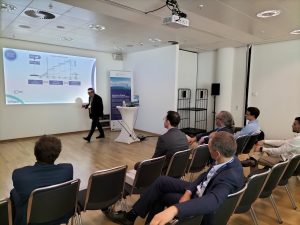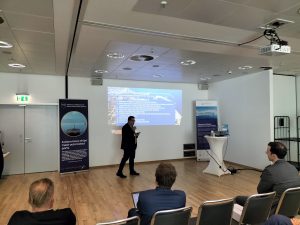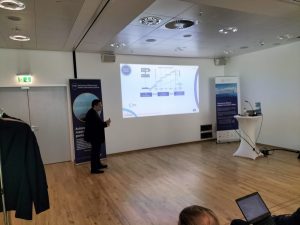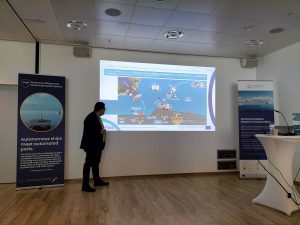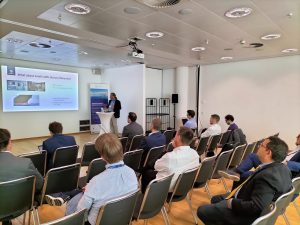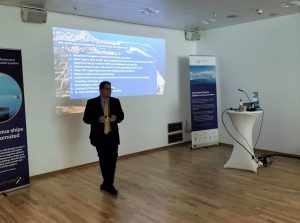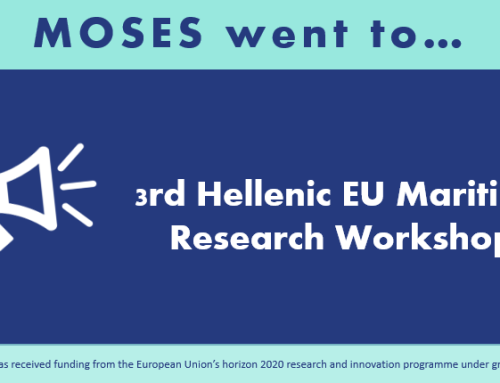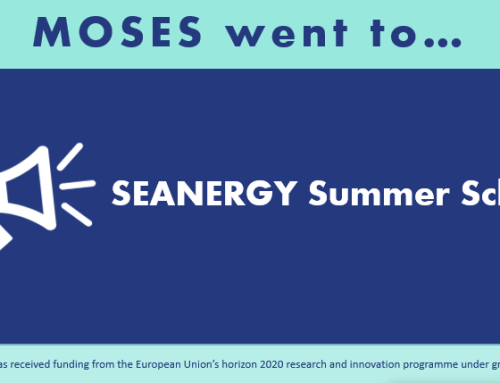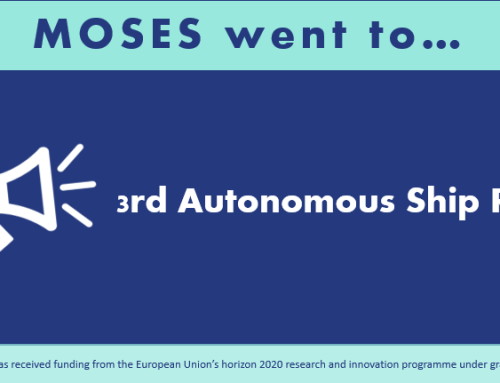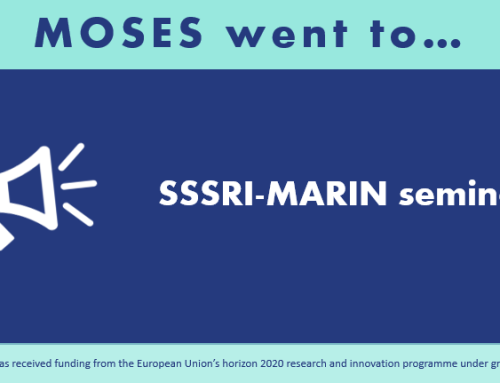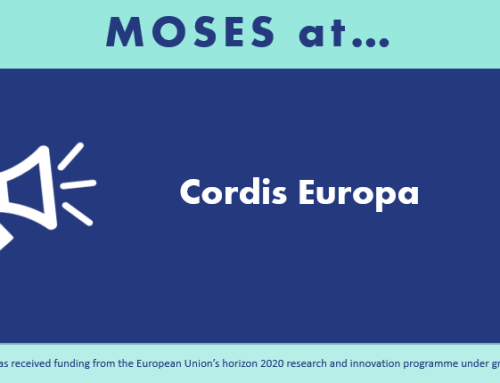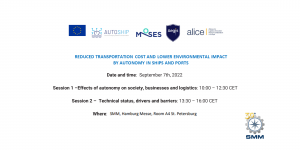
The 30th SMM took place on Hamburg’s exhibition campus from 6 to 9 September 2022. SMM delivers important stimuli to achieve this goal, said Knut Ørbeck-Nilssen, CEO of DNV Maritime, the main sponsor of the flagship fair: “SMM is one of the best events in the maritime calendar. It is truly global, and with its focus on innovation, it gives people an impression what the future of shipping will look like“.
SMM was again accompanied by high-profile conferences covering specific topics such as digitalisation (Maritime Future Summit), ocean research (Offshore Dialogue), as well as security and defence (International Conference on Maritime Security & Defence).
Sister projects AEGIS, AUTOSHIP & MOSES, along with ALICE, have jointly organised a seminar entitled ‘Reduced transportation cost and lower environmental impact by autonomy in ships and ports‘, which it was conducted within the 30th edition of SMM, on September 7th, in Hamburg.
The event agenda can be found here.
The seminar was organised in two sessions:
Session 1: Effects of autonomy on society, businesses, and logistics
Session 2: Technical status, drivers, and barriers
SESSION 1: presentation & photo material*
Marco Colella (PNO): Why autonomy in waterborne transport? – A systematic review (ppt available here)
Linking ship and port autonomy to sustainable developments goals and concrete societal benefits.
Kristoffer Kloch (DFDS): Leveraging autonomy to create cost effective and sustainable businesses for intra-European transport (ppt available here)
An example of linking short sea shipping to inland waterways to create new automated logistics systems.
Antoon van Coillie (ZULU Associates): A broader perspective on logistical and supply chain opportunities created by autonomy (ppt available here)
How can European and International cargo transport system benefit from increased automation in ports and on ships?
Janne Suominen (MacGregor): Reducing cost of transshipments by automation in ports and terminals (ppt available here)
Automation in port as an essential factor for increased use of waterborne transport in supply chains.
- Marco Colella (PNO)
- Kristoffer Kloch (DFDS)
- Antoon van Coillie (ZULU Associates)
- Janne Suominen (MacGregor)
SESSION 2: presentation & photo material*
Ørnulf Rødseth (SINTEF Ocean): Who will be first – autonomous car or autonomous ship? (ppt available here)
Autonomous ships is a more realistic value proposition than autonomous cars, but current approval procedures may be too strict and costly. How the concept of autonomy is different for cars and ships, and other factors that favours the autonomous ship as winner given that the industry agrees on reasonable safety requirements that allows for cost-effective deployment of MASS.
Jorge Miguel Lara Lopez (Fundación Valenciaport): Adaptation of port call process for autonomous ship in a big port (ppt available here)
The presentation aims to conceptually analyse the implications of the call of an autonomous vessel in a large port, needs, pros and cons from an operational point of view and its implications at the level of communications and information.
Benjamin Boyer (CCNR): Automation of inland waterway vessels (ppt available here)
How does IWW rules and regulations adapt to automated shipping? What is the vision of the Central Commission for the Navigation of the Rhine (CCNR)? How is this linked to MASS developments in IMO?
- Ørnulf Rødseth (SINTEF Ocean)
- Jorge Miguel Lara Lopez (Fundación Valenciaport)
- Benjamin Boyer (CCNR)
MOSES project was represented by VPF partner, towards delivering a presetation entitled ‘Adaptation of port call process for autonomous ship in a big port‘, as part of the session 2.
